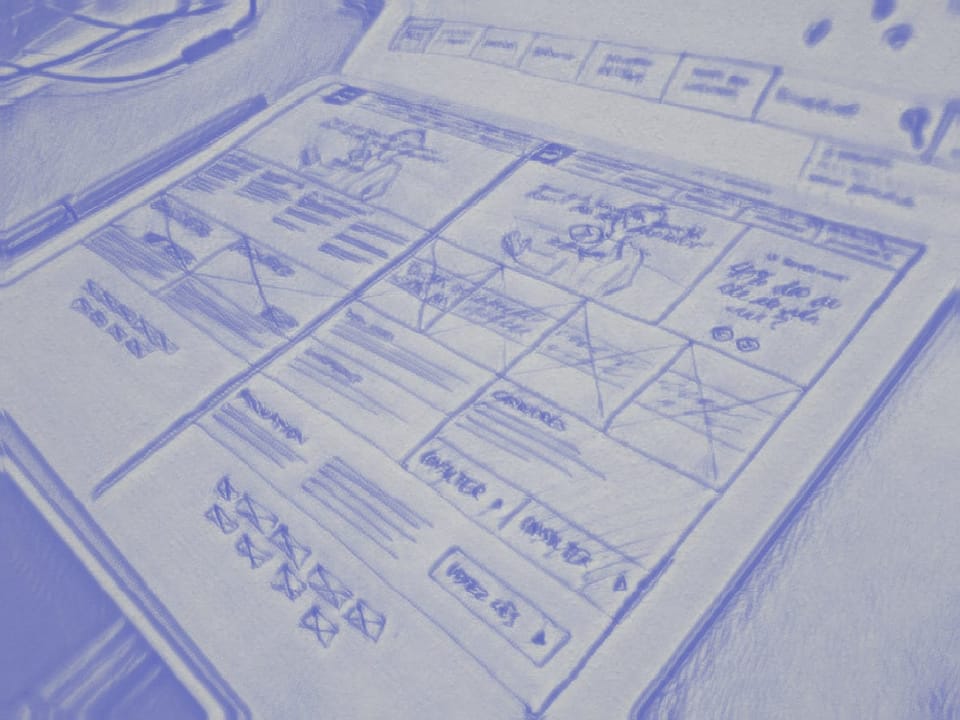Transcript: What is up with potential clients just ignoring you after you send a proposal?

You can listen to this episode on Anchor
Here is a full transcript of this week’s podcast.
Baz Baruah – host:
This is All Work, No Pay, a show that answers real questions that consultants, freelancers, and business owners have asked.
Okay, so, this is another episode of All Work, No Pay, where we take real questions asked by consultants, freelancers, and business owners and get an expert to answer them for me, and today’s expert is Ems Rae Searl. Hi, Ems.
Ems Rae Searl:
Hiya! How are you?
Baz Baruah – host:
I’m very good, thank you.
Ems Rae Searl:
Good.
Baz Baruah – host:
So, Ems – if you don’t know her – she’s a self-professed social media nerd and she’s an ethical sales enthusiast. I love the sound of that, ethical sales.
So, today’s question, the question that’s been asked is from a web developer who – the headline is basically, ‘What’s up with potential clients just ignoring you after you send a proposal?’ Now, I’ve got a lot of opinions about proposals, and the way you deal them, the way you structure them, but how do you feel about them, Ems?
Ems Rae Searl:
Well, I think that formal proposals – especially when they’re just sort of sent over email with a ‘Hey, what do you think about this? Let me know if there’s anything that you’re not sure about’ – I think they’re on the way out.
So, I don’t think that proposals are necessary for a lot of lines of business. A lot of freelancers, especially, coaches and consultants – which is who I deal with on my sort of everyday – I don’t think that proposals are the way to go because they are just so impersonal. I think they’re on their way out. I think there’s a more modern way to sell, which is a lot more ethical, and it works a lot more, as well, because you’re there in the moment with the person that you’re trying to create a relationship with.
Baz Baruah – host:
So, you said something really interesting there, which is that actually a proposal is a sales document. A lot of people think that, ‘We’ve had our interviews. We’ve had our meetings, and all the stuff that – we’ve agreed everything that needs to be done,’ and then all you need to do for your proposal is do a massive brain-dump of all the deliverables you’re going to get at the end of it, and that’s it, and then a price on the bottom, and that’s all you need. But actually, a proposal is much more than that; it’s a sales document. It’s about confirming the sale.
Ems Rae Searl:
Yeah, exactly.
Baz Baruah – host:
Yeah. So, for me, as an aside – so, this is in defence of proposals – for me, my work’s software development, especially if you’ve got a software developer or you’ve got a web developer, it’s really important to list out what the client is going to be getting because it can be a bit intangible and a bit up in the air. But I know some people who spend maybe hours writing their proposals and go into a detailed breakdown of each bit of the software that’s going to be there.
I don’t do that. I never spend more than an hour on mine and that’s because I leave – the problem with software is the details change as the first time you deliver it, your original plan goes out the window and you have to write something else. So, I leave everything pretty much up in the air and say, ‘This is what we’re going to do. This how we’re going to measure it.’ But as to what you’re actually going to get at the end of it, I leave that unsaid. So, I have quite a different approach to proposals, anyway, but from the sounds of things, yours is totally different: your ethical selling approach is not proposal-based in the slightest.
Ems Rae Searl:
Absolutely not. I haven’t written a proposal since February, I think, and that was when I was just starting out on my own, and I was like, ‘Oh, well, this is a thing that I have to do because everyone’s telling me, “Oh, you need to send off proposals for your clients.”’ And I did, and it didn’t end well. And I was like, well yeah – I mean, we had the phone call, and we agreed on what this client needed from me, and how I was going to support her over a three-month period, and it just, it didn’t go down well. She got the proposal, and then she did that thing where she was like, ‘I’m going to step back, and I’m going to think about it for a few days.’ I was like, ‘Ah!’
See, that’s what you don’t want to do because that’s where you create a disconnect, and this is why I don’t like proposals because they are impersonal. Bearing in mind, back then was just at the very start of this pandemic and people weren’t as much as I think they are now craving that humanness that an actual conversation with a human being can give you.
It’s like there’s a little tip that I do whenever I help someone with a CV because, I don’t know why but a CV to me is very similar to a proposal in a sense, isn’t it? Because you’re proposing yourself for a job. I mean, I plan to never have to have a CV again because I really enjoy being a business owner, and I don’t really want anyone else to hire me ever again, but I do really enjoy making CVs look good. So, I’ve actually helped quite a few family members and friends with their CVs, and I always put a picture of them on the CV, and it’s because it creates that human connection. It’s not just a piece of paper anymore; it’s a person.
And I don’t think there is, really, there’s not an awful lot of ways that you can make a proposal personal. So, I’d say that proposals are out and video calls are in because that way, you’re giving them that closeness and they know you are. And when they know who you are, they’re going to trust you more. When they trust you, they’re going to go, ‘Here! Here is my money. How do I pay you? Because I need what you’re selling,’ and that’s what you need from someone.
Baz Baruah – host:
Absolutely. That’s really interesting. That’s also, that’s my little secret weapon when it comes to my proposals is I never, ever – well I do, but only when I’m lazy and I don’t really want the job – is I never email them to someone. Because what you’re basically doing is you’re throwing it over the wall, and then leaving it chance what happens with it next.
And as you say, there’s the human contact bit, but then there’s also that just any time you’ve got something written down, it immediately becomes ambiguous and they can take it the wrong way. They can have these questions, and they’ll say, ‘Right, I need five days to think about this because I’ve got all these questions brewing.’ Whereas if you do it – so, what I do is I’ll say to them, ‘Right, can we have a call?’ We’ll book a call. And then at the start of the call, I will send the proposal over to them, and I’ll say, ‘Can we read through this together?’ And then, any questions they have – and I have a very set structure for it – but any questions they have, they can ask me there and then, and then I can deal with them there and then. And that makes a massive, massive difference, I think.
Ems Rae Searl:
Exactly. It closes that disconnect. And I think if you have to do proposals because I mean, so many businesses that aren’t in the coaching and consultant space – which is what I do – they thrive on proposals and quotes because, like you said, you do need to detail exactly what they’re going to be getting from you and get that out in the open. So, I think if you’re going to do proposals, if your business needs it, that’s the way to do it. Whatever you do in business, you have to take a human and personal approach because in this day and age, if you don’t, you’re going to fall behind. And I 110 per cent believe in that. I’ve seen it happen so many times. People crave connection.
Baz Baruah – host:
Yeah, absolutely. They need to feel like you’re there for them.
Ems Rae Searl:
Yeah, exactly.
Baz Baruah – host:
Just sifting through another Word document written in bloomin’ Arial, with lots and lots of bullet points with words that you don’t…
Ems Rae Searl:
Oh, god!
Baz Baruah – host:
… fully understand is probably not going to do it for them.
Ems Rae Searl:
Yeah, no, I completely get that.
Baz Baruah – host:
So, if you get someone who’s interested in what you do that needs some help with their social media strategy, how do you approach it? What’s your sales approach, then?
Ems Rae Searl:
So, my sales funnel/approach is definitely very sort of heavy in the marketing sense because what I do is position myself as an expert and help people; I need for those people to see me as an authority and go, ‘Yeah, this is the person I want to spend my money with.’ Until they’re at that stage, there is little to no point trying to sell to them because the more you try to sell to someone who doesn’t understand their problem and understand that they really need help and therefore need you, you’re just going to be pushing them further away and alienating any chance of having a sale in the future with that person.
So, the way that I handle things is a very lengthy process of getting to know people, speaking to them a few times a week or a couple of times a month depending on how active they are on the particular platform that I’m talking to them over because everything is personal. I often send out – when I have a new offer and know someone’s interested in it because we’ve already had that conversation, I’ll send them a video message of myself saying, ‘Hi! This is something that I’ve got going. If you wanted to hop on a call with me, that would be great,’ because it puts a face and a voice to what would otherwise be seen as a cold pitch.
So, I like to warm up the audience, and build relationships with them, and actually help them. So, a huge part of what I think needs to be done more, especially in coaching and consulting businesses, is creating some really valuable content and stuff that helps them with problems.
So, what I do is I sit down once a month and I think, ‘Okay, this is my ideal client,’ and everyone’s got their ideal client avatar. You can’t go to a marketing seminar, or webinar, or whatever without hearing, ‘You need an avatar.’ So, everyone has that. And you’ve got to think to yourself, ‘Right, okay, this person, she’s Alison. She’s 35. This is where she’s at with her business. What is her problem?’ Not in the nasty way, but like, ‘What is she struggling with right now? And how can I help her fix that? What questions is she going to ask?’ Which I mean, kind of, you’re already doing this with, like, you’re going through Reddit looking for these questions. That’s genius because that’s what more people need to be doing: you need to find real questions that real people are asking, and you need to answer it for free. Give everything you’ve got. Overdeliver and overdeliver and overdeliver until they’re like, ‘This person gets me. She understands my problems. She understands where I’m at with my business. And she understands what I need to do to get out of it, and I need extra help so I’m going to go to her because she’s already helped me.’
Baz Baruah – host:
Absolutely.
Ems Rae Searl:
So, it’s about overdelivering, and valuable content, building trust, and positioning yourself as the authority, like, ‘Hey, I’m the person with all the answers to all of your questions,’ and building that relationship. And eventually, you’re going to come up with a launch and say, ‘Hey, I’m starting – I’m taking on clients for my 12-week coaching programme’ or whatever you’ve got at the time, and they’re going to go, ‘Hey, I need that. Where do I sign up? Can we have a call?’ And you close that sales conversation over the call because it’s more in person. You get that commitment from them on the phone, and then just send them a contract when you’re done. Just say, ‘Okay, cool. Tomorrow I’m going to draw you up a contract. It’ll be with you by lunchtime. If you could just sign that, send that back over to me, I’ll sort out payment and stuff with you. And yeah, let’s just see how it goes. Let’s have a chat tomorrow afternoon if you’ve got any questions and you’re not sure.’
It just closes off all of that space that a proposal gives you for alienating yourself from your client and creating that gap, and then, you know, taking things the wrong way, as you said. Yeah, I think that’s 100 per cent something that just needs to be axed because I don’t like it. And it makes you feel uncertain as a business owner, as well, because until they’ve signed on the dotted line, they’re not actually a client.
Baz Baruah – host:
And there’s the whole thing about them ghosting you or not getting back, and then you’re chasing them, and you’re chasing them, and you’re chasing them, and it’s just bringing stress on yourself. However…
Ems Rae Searl:
And chasing just pushes people away.
Baz Baruah – host:
Absolutely, yeah. Exactly. It just comes across as desperate. There’s a couple of points, though, that you said during that process which I think a lot of people are scared of doing. It all comes down, actually, to the idea client avatar bit: if you don’t have your ideal client avatar, then none of this works, I would say…
Ems Rae Searl:
Yeah.
Baz Baruah – host:
… because you have to get into someone’s head. And in fact, that’s the other thing – so, I did a very similar thing a while back for my software business, where I started publishing up a load of blog posts where I would take questions that people had. And I got responses from people saying, ‘It’s like you read my mind,’ and it’s like, ‘Well, actually, I didn’t read your mind; I just looked at what people were asking and answered those questions.’ But if you don’t know what people are asking, then you can’t get that valuable content, and if you can’t get that valuable content, then you’re not positioned as an expert.
So, the biggest problem I think for a lot of people is saying, ‘Well, actually, I can work for anyone,’ or ‘I work with small businesses.’ I hate that. Apparently, in America, the Small Business Association defines their clients as anyone up to $28,000,000 a year in revenue. So, if you say you work with…
Ems Rae Searl:
Crikey!
Baz Baruah – host:
Yeah. Small businesses is like someone who runs an Etsy shop part-time out of their bedroom or brings in $28,000,000 a year. So, I think…
Ems Rae Searl:
Yeah, I think that – yeah, I see a lot of fear, especially in my own clients, about niching down too far, and I genuinely don’t think that’s possible. I think the more specific you get, the more personal you can craft your message. And the more you can – I mean even if you somehow manage to niche down to, like, say you’ve got an audience of 10,000 people but only 500 of them fit within your very specific niche, you’re more likely to get a percentage of those 500 clients pay you a good amount of money than you are to get a little bit of money out of all 10,000, or whatever number I said at the beginning.
The more you niche down, the more you’re actually helping that one specific person. And you can always change your niche in a couple of years. If you decide that you want to help someone else, or you’ve expanded your skillset – you’ve gone up a level so you want to help people at the next level that are where you were a couple of years ago – there’s always that chance to sort of move on and reposition yourself. But people don’t niche down enough.
So, for example, I’ve worked with a couple of coaches who are life coaches, and they have got all of their NLP certifications, and they’ve done life coaching, and they’ve done counselling before in a professional standpoint, and they’re just like, ‘I want to help people.’ It’s like, ‘I get that, but who do you want to help?’ And they start listing off like, ‘I want to help mums that don’t have any confidence, and I want to help teenagers with this, and I want to…’ and it’s like, who are you helping? You’re not helping anyone because you’re putting out – no offence – but you’re putting out content that is so… Ah, I don’t even know the word for it! It’s so vague, and it’s so all over the place because you want it to appeal to everyone, but you can never appeal to everyone. So, instead, what you’re doing is you’re putting out content that every single one of your ideal clients – all 20 of them or however many you have – are looking at and they’re like, ‘Ugh, okay. That doesn’t really appeal to me specifically,’ and they’re not going to connect with it, and then you’re not going to get any clients.
Baz Baruah – host:
‘I see what you’re getting at, but it doesn’t speak to me,’ and that’s the worst bit of it.
Ems Rae Searl:
Exactly.
Baz Baruah – host:
And again, that actually comes back down to the ghosting bit when you send out a proposal and they never come back to you is there’s no urgency in it. If they’re ghosting you, if they don’t think, ‘I’ve read this, and I need to make a decision in the next 30 seconds,’ then there’s no urgency to it. If they can wait five days, then you’ve not put any urgency in them; they don’t feel any urgency in what you’re saying. Whereas if you put something out there that your ideal client says, ‘It’s like she read my mind. I have to work with her,’ then that’s the urgency right there: ‘I have to work with her.’ And that’s it, and they leap straight in for you.
Ems Rae Searl:
Exactly.
Baz Baruah – host:
And that whole ghosting problem goes.
Ems Rae Searl:
I 100 per cent agree. There’s so many people out there that just don’t create that urgency out of fear of being too pushy and being too salesy, which I 100 per cent get because I’m huge into this whole ethical sales thing. I never want to back anyone into a corner.
So, instead of creating urgency in a sense of, ‘You have to make a decision now otherwise the price is going to go up three times,’ because I see that a lot and I think that’s really icky and disgusting, but I do think that there is a value in getting a commitment over the phone. And one of the best questions you can ask – and obviously, it depends on how the call is going, and how warmed up this person is. Say, you’ve had them on your radar for a while now, I think one of the best things that you can do is gauge how the conversation’s going, and if they are really genuinely enthusiastic about making the change, just ask them the question, ‘Well, what is this going to be worth if you don’t do it? If you don’t do this, is that worth it to you?’ Not, ‘If you do do it, is it worth it?’ ‘If you don’t do this, you’re going to miss out on these opportunities. What is that worth to you? And are you prepared to make a commitment?’
And more often than not, they’ll go, ‘You know what? There’s a reason I’m on this call, and it’s because I need to make a change. So, I’m going to commit.’ And getting that ‘Yes, I’m going to commit,’ they’ve already made their mind up, so it doesn’t matter if you send them a document and you give them a few days because they’ve already said, ‘Yeah, you know what? I need this,’ and they might cool off a little bit and think things through, but that’s okay because you never want to take someone’s money – we all work so hard for our money – you don’t want to take someone’s money without them being 100 per cent certain, especially if you’re going to have a long-term relationship with them, that they want to carry on with this. So, I do like giving them some time afterwards, but I get that commitment on the phone.
Baz Baruah – host:
Yeah.
Ems Rae Searl:
Because that creates almost like – well, they’ve already committed, haven’t they? They’ve said, ‘Yeah, this is something that I need to do.’ I have never experienced someone go, ‘Hmm, actually, I’ve thought about it, and I don’t think you’re going to valuable anymore,’ because you’ve already gotten them to see your value for themselves. You’ve asked them the questions, ‘What is this worth to you? What do you want to get?’ Not ‘Here’s what I can do for you. Here’s all of the things I can do. Is that valuable to you?’ No, it’s ‘This is everything that you could potentially miss out on. This is where I think that I can get you in this timeframe. How valuable is that? Can you commit?’
Baz Baruah – host:
So, just to recap, then. So, our key factors seem to be: make sure you know who you’re dealing with, who your ideal client is; make sure that you understand what’s going on in their head and you position yourself as an expert who understands them, who knows what they’re doing. And the way you do that is through valuable content, getting it out there.
Ems Rae Searl:
Make sure you can actually help them is, I think, number one. You don’t want any sales from someone who you can’t actually make a difference to because that makes you a dick.
Baz Baruah – host:
Absolutely, yeah. The number of times I’ve been in – when I used to have a proper job, and the sales guy would go out and make all these promises, and then, come back and say, ‘This is what we’re going to do for them.’ And I’d be like, ‘Oh, my god. What have said that for?’ And yeah, you don’t want to be making promises you can’t keep. So, you have to be able to help people before you go anywhere with them. And then, when you’re in the conversation with – have the conversation with them, then, I think that’s the key thing. Speak to them. Make sure…
Ems Rae Searl:
Be their friend. Don’t be this person that’s trying to take their money. Be someone who genuinely wants the best for them, and say, ‘Hey, within the next 90 days, 60 days,’ whatever time period you’ve got with them, ‘I can get you from point A to point B, and if you didn’t already trust me, you wouldn’t be on a call with me.’
Baz Baruah – host:
Yeah, perfect. So, any coaches and consultants out there listening to this who need to help with their social media strategy who want to sell ethically, how do they get in touch with you, Ems?
Ems Rae Searl:
They can reach out to me on Instagram, which is my preferred platform of choice, and that is @emsraesearl, and you can also find me at emsraesearl.com – I try and keep everything fairly standard and fairly level.
Baz Baruah – host:
Perfect.
I’d be really grateful if you could leave us a review in your podcast app. And if you’d like a transcript of this episode, and to join on Fix-It Fridays, head over to clientrobot.com/allworknopay.
Struggling with your business? Get profitable - free 15 minute consultation: https://calendly.com/clientrobot/15-minutes




